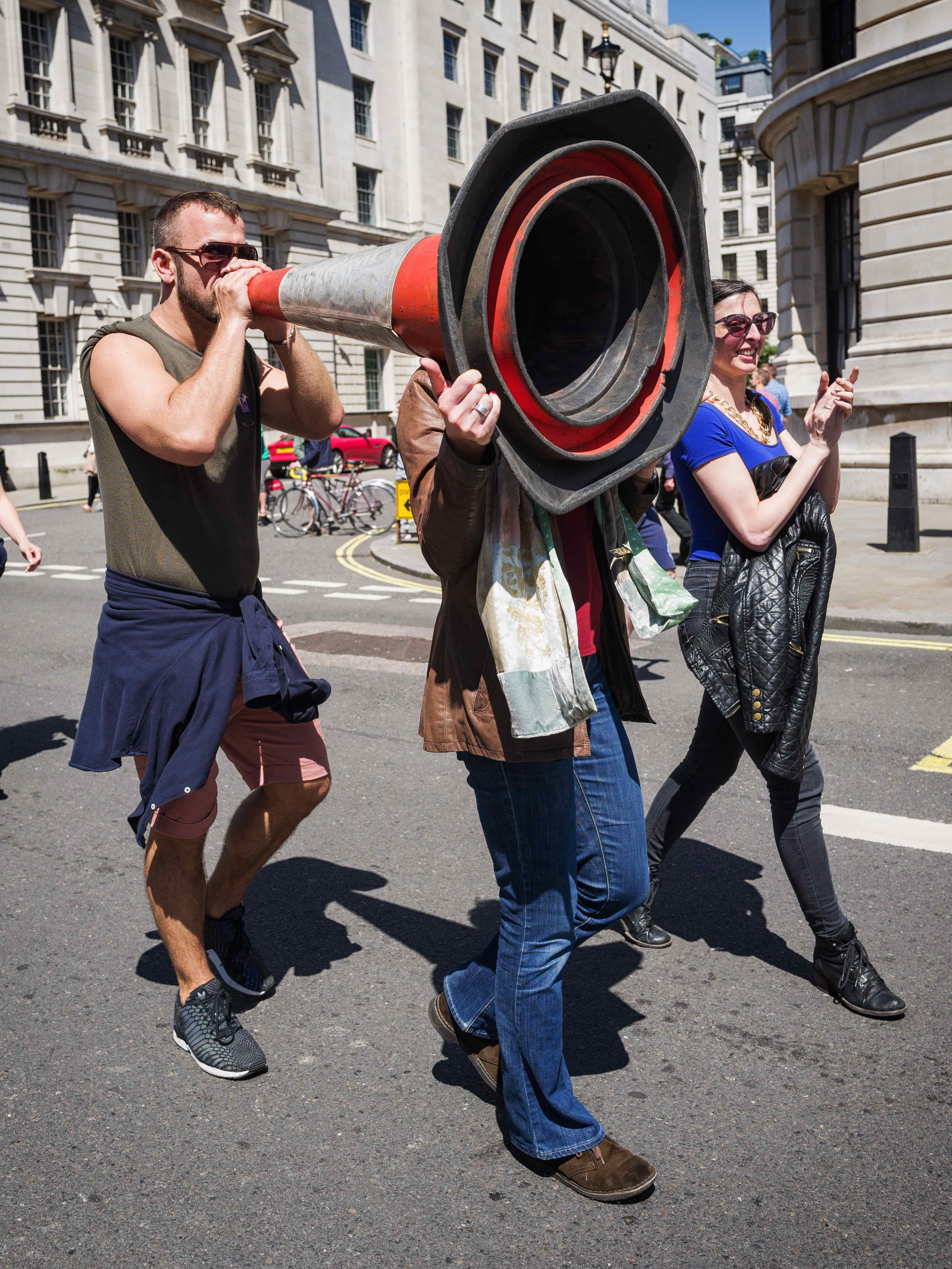Raffaella Baritono: You have raised the issue of the ‘lethargy’ of political theory. Could you expand on this point?
Michael Freeden: Political theory is too intertwined with conventional approaches taken from the history of political thought or from political philosophy. The first is an invention of philosophers that conducts a highly selective excursion through a small, and often unrepresentative, number of unique philosophers as illustrative of an entire genre. The second is a set of normative, ethical exercises focused on clarifying and improving the quality of political thought but often dealing with universal abstractions that have only limited relevance to the real political world.
Political theory is in need of considerable refreshing and opening up its purview to include broader perspectives. Some of that has already been undertaken by students of ideology or conceptual history, who have long desisted from confusing the thought of a small number of geniuses with the immensely complex mutations, trajectories and ruptures that characterize thinking about politics. Indeed, students of ideology in the non-Marxist sense were among the first to do so, running the gauntlet of those philosophers who insisted that whoever studied the ideas of inferior thinkers would inevitably produce inferior work. The inclusion of the typical and the normal, the good, the bad and the shocking – rather than just the intellectually superior, hence abnormal – performed the dual role of shifting the study of political thought toward the social sciences and democratizing it. And that is the second change: a vast expansion in what counts as political thinking, mainly through embracing its vernacular, non-professional, manifestations, in the press, the digital media revolution, the language of journalists, bureaucrats and shopkeepers. A large range of sources and evidence has been tapped and, no less importantly, been accorded legitimacy and weight.
The third development – still a dividing line – separates the abstract universalists from the concrete particularists. Many regard the all-embracing of universalism as the hallmark of ethical completeness and perfection, drawing in the entire human race under a mantle of perpetual equality and inclusiveness, both protective and enabling. That appears to be a tremendously exciting and redeeming vision. But its fatal attraction is that it collapses both space and time; indeed, it makes them invisible. And that vision also produces profoundly tragic outcomes. It condemns societies to experiencing repeated cycles of disappointment and frustration when those goals are unreachable; it threatens to paint the world as grey on grey or, for that matter, as golden on golden, and in one shade rather than fifty. As an unintended side-effect, it also bestows the kiss of death on disciplines such as history and anthropology. Most strikingly, the search for universalism dehumanizes us, by conferring unassailability on our ideas, by sanctifying them, by sending them into orbit where they remain forever out of our grasp on a one-way trip to immortality.
A fourth change in the internal balance of political theory has been the rising appreciation of the emotional as a key feature in making sense of political thought. For far too long the emotional aspects of political language have been demoted at the expense of the rational. That bias is still central to many philosophical genres but it is spread more widely. Yet the language of politics that its theorists need to address undeniably includes emotion, occasionally passion, in all its manifestations, whether in parliamentary debates, in election campaigns, or in the feelings aroused by nationalism, often counter-balanced by the quieter, but no less strongly felt, passions of liberalism for fairness, tolerance and human dignity.
Undertaking all these things seriously will enhance the reputation of political theory, currently burdened with thought-experiments, or excursions into antiquity, that do not resonate with the worlds and languages of politics.
How is that lethargy connected with the crisis of liberalism? In your work, you have often maintained that we should speak about liberalisms in the plural. Do you think that liberalism, as a political theory, has still the ability to rethink itself in a new and different version as happened at the turn of the 20th century to counteract the challenges of socialism and Marxism?
One major weakness of liberalism is precisely in the difficulty it has in arousing, through is rhetoric and language, public emotions – which successfully serve as a recruiting and consolidating base for many other political movements and ideologies. One should not of course underestimate liberalism’s domestic successes in promoting the welfare state, plainly a liberal, not a socialist, construct. Its other, often unsung, success has been in permeating social democratic theories and the constitutional and liberty-respecting forms of conservatism. In fact, though liberalism is currently at a low historical ebb, it has constantly reinvented itself: from a doctrine protecting personal spaces and rights against tyrannical governments and individual malefactors, to a theory of free trade and peaceful international relations, to a theory of human personal and cultural development, to a theory of mutual responsibility supported by a benevolent state as enabler and, more recently, to the recognition of group identities in a multicultural and even multi-ethnic society. But it has been beset by usurpers, not least neoliberalism – an aggressive predator in its desire to misappropriate the word ‘liberal’.
Neoliberalism has tarnished the reputation of liberalism more generally through persuading people that it is part of the liberal family, not least in eastern and central Europe. In so doing, it has colonized and misappropriated much of the liberal space and left the latter occasionally starved for oxygen. It propounds a view that emphasizes the beneficial consequences of competitive markets and material personal advancement far more than the general nourishing of human well-being. First, neoliberalism has created a new social unit to replace the individual: the client/customer defined as an economic consumer. Specialized words such as passenger or citizen have been supplanted by a generalized and faceless depersonalization of the classic liberal individual. In current jargon the public has been reduced to ‘tax-payers’ while other members of society are reduced to insignificance. Second, neoliberalism shifts socio-political control to a top-heavy, politically unaccountable sphere. It has been well-understood – for instance by Foucault – that the market, seemingly a release from constraints, imposes its own disciplines and punishes those unable to play by its rules with the stigmas of personal failure, poverty and marginalization – a far cry from liberal humanism. Third, it shifts social values to a mastery of management techniques that bring with them pseudo-efficiency. Fourth, liberal universalism is ditched in favour of neoliberal globalism. In other words, a genuine attempt at including all human beings under an ethical protective umbrella may have been naïve, and blind to the values endorsed by some a-liberal societies, but it is still far removed from the attempt to fashion the planetary norms and practices according to the aims and standards of financial and commercial conglomerates. Liberals must be alert to the possibility that the pursuit of liberty stops at the point where it endangers rationality or progress or individuality.
It seems increasingly the case that the new phase of liberal inventiveness must revolve around the battle over public political language. In particular, it needs to counteract the ‘fast-foodism’ of left and right ideologies and return to a more measured and reflective ‘slow cooking’. That involves not only ‘audi alterem partem’, but ‘hear the losing side’. And it needs to undermine the disastrously illiberal exaltation of the ‘will of the people’ by populists, where even an already illiberal majoritarianism is converted into something worse: a total, singular and monolithic viewpoint that sweeps all others away. Liberals must revalue the democratic importance of the reversibility of decisions when some decisions are declared by others to be untouchable. Liberal democracy cannot be condensed simply into winning. In addition, liberals need to pin their colours to the mast that we all are members of one minority or another, who can claim a share in a dignified civic life.
You stated that increasing importance is allocated to the vernacular, the ordinary and the typical. In your opinion, is this a consequence of the rise of new populisms or, on the contrary, have new populisms taken advantage of the shift away from abstract and universal categories?
Populisms have little to do with this. Rather, it reflects a paradigmatic shift in our understanding of the political as a complex set of practices that occur at any level of human interaction. As I explain in my 2013 book The Political Theory of Political Thinking: The Anatomy of a Practice, it is a necessary break away from the refined abstraction of political philosophy to the empirically grounded focus of the social sciences on what actually happens in a society. Only through contextualized micro-analyses can we understand the intricacies of political thinking and practice, moving away from sweeping generalization, and from advocacy to interpretation. I have Max Weber’s Verstehen in mind. If anything, most populisms offer a false representation of the people by claiming to act on behalf of ‘the people’ versus ‘the elites’. In reality those populist movements are usually headed by alternative elites who declare themselves unilaterally to be the voice of the (mostly silent) people and determine their agenda.
Brexit and Trumpism, according to many observers, represent a sort of breakdown of the social contract at the core of liberal democracy. Do you agree with that statement?
If there still is a social contract, it broke down long before Trump and Brexit. The causes often lie in the failure of democratic mechanisms plus the deliberate promotion of political ignorance. In the US case, the loser of the elections became president because of an archaic electoral college. In the UK, Brexit became possible because a constitutionally advisory referendum was arbitrarily elevated to the status of a binding one under right-wing pressure, even more binding than a general election because of the absurd insistence on its irreversibility. As for an ignorance that spilled over into public and deliberate deceit, one should call into mind Rousseau’s vital injunction concerning a general will: ‘properly informed’. What is particularly alarming about populism is that it has virtually no plan, no sustainable public policy, except to install an alternative leadership and then expect the best (i.e. a political and social resurrection in which rules are made up as its leaders stumble into the unknown). At least in Trump’s case he is restricted to eight years in power, whereas the catastrophe of Brexit (for the UK and the EU) could last forty years.
Market vs people would seem to be contributing to the demise of representative democracy. Are these two competing ideologies or are they both what you define as ‘ideolonoid’?
Market and people are not themselves ideologies but concepts that can be put to the service of many ideologies; they are, at best, segments of an ideology and they can help form very diverse ideological clusters. It is indeed the case that they may both be used to undermine representative democracy. However, markets have in the past been tamed and controlled by state regulation and even seen by free trade liberals as examples of openness and international co-operation, while the people have been the very rationale for the establishment of democratic institutions. As noted above, it is the increased power of multinational conglomerates that provides a challenge to the power of the state, which all too frequently no longer has the resources, the status or the will to modify market activities (although combined action, such as that by the EU, can act as a constraint). The ideolonoids by contrast are phantom, vague and dangerous. They are structures with the shape and some external features of ideologies but lacking any significant content. They roam the streets looking for all intents and purposes like their real counterparts, but they replace healthy political imagination and vision with damaging fantasy. The problem is that it becomes very difficult to distinguish between an organic, grassroots, and evolved ideology and its fast-food, short shelf-life one, hastily trotted out and forged. Thus when one probes the ideas of, say, right-wing populists, they turn out to be largely illusory and socially insignificant in contrast to the solidity of past ideological heavyweights.
The solid anchoring points that assist in retaining structure and that offer the core concepts of an ideology a modicum of predictable consistency are dismantled in favour of impermanence and randomness, and a laxity of the sustainable narratives from which ideologies usually derive reassurance, sustenance, and stature. The most damaging ideological consequence is the redrawing of the map of what is ideologically permissible, alongside the further debasing of the reputation of politics itself. The main issue is not that some of those discourses peddle falsehoods, but that they are shapeshifters, substituting appearance for actuality, through phrases such as ‘fake news’ and ‘alternative facts’. They undermine not empirical evidence but the criteria through which evidence in ascertained. The ideologies to which aggressive markets are attached, and the nationalist (not populist) notion of the people, nonetheless have substance.
Il Mulino was founded with the vision that intellectuals’ duty was not only to be present, but propositive in the public arena. Do you think that today there is still room for engaged intellectuals to contribute actively to the improvement of our society?
It is completely necessary for that function to continue. Intellectuals are crucial for societies on two levels. First, they have the mental space to offer an experimental creativity and a laboratory for addressing social and political issues (and other issues as well, of course). Second, the methodology of a good intellectual, or scientist, or academic, is to introduce tentativeness and critical distance to any subject, as well as concrete and empirically based relevance. Critical distance is not opposed to public engagement but is an integral part of the process of offering improvement, because the improvement modern societies need most is to renegotiate the culture of public discourse and the employment of non-obfuscating and transparent language, without which other substantive projects will fall by the wayside. That renegotiation is itself a major aspect of the social reform societies should advocate and is profoundly liberal in outlook, honesty, reflectiveness and trial-and-error realism.







